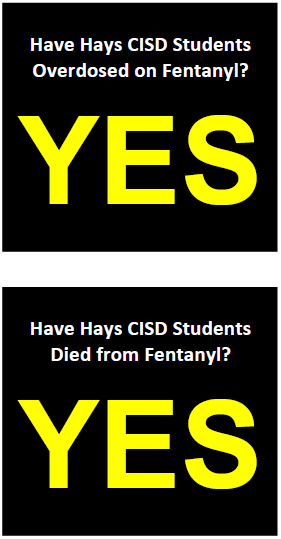
During the summer of 2022, the communities in Hays CISD began to see an increase in overdoses, poisonings, and deaths related to fentanyl. Illicitly manufactured fentanyl is often the ingredient used in counterfeit pills purchased on the street – sold as something else like Xanax, Percocet, or oxycodone. Quite often, in cases involving fentanyl, people who take the drug have no idea they are taking it. In the drug trade, fentanyl is a cheap alternative to other synthetic opioids and it takes so very little to kill.
Sadly, during the summer and first week of school in 2022, four Hays CISD students died from fentanyl poisoning, or suspected poisoning. By the end of the 2022 - 2023 school year, the number of Hays CISD students who died from fentanyl poisoning had risen to six. In October 2023, a seventh student died. Additionally, students have overdosed on the drug both at school and at home. Given the direct effect on our school district and our students, Hays CISD has committed to keeping the fentanyl conversation open and ongoing.
"I'm worried. We take all safety and security issues very seriously, but this one is especially concerning. We must treat the fentanyl crisis with urgency,"
Superintendent Dr. Eric Wright


